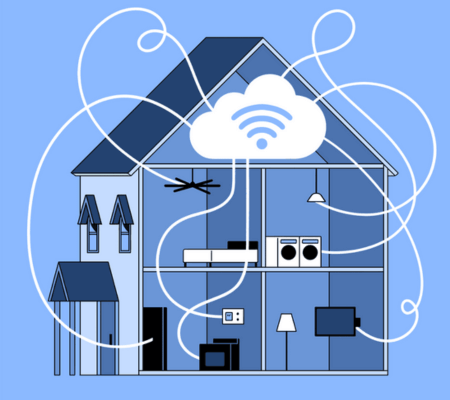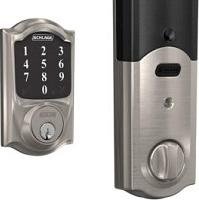Smart home technology has revolutionized the way we live our lives. From controlling our lights and thermostats to managing our security systems and appliances, smart home devices have made it possible to automate and streamline many aspects of our daily routines. However, with so many different devices and systems on the market, managing them all can be a daunting task.

This is where smart home managers come in. A smart home manager is a central hub that allows users to control and manage all of their smart home devices from a single app or interface. With a smart home manager, users can set up schedules and routines, monitor energy usage, receive alerts and notifications, and even control their devices remotely. Essentially, a smart home manager acts as the brain of a smart home, allowing users to easily and efficiently manage all of their connected devices.
Understanding the Essence of a Smart Home Manager
At its core, a Smart Home Manager is an integrated system that orchestrates various smart devices and technologies within a household. It acts as the central nervous system, enabling users to control and automate numerous tasks through a single interface.
The Functionality and Capabilities of a Smart Home Manager
A Smart Home Manager serves as the central brain of a smart home, offering a spectrum of functionalities that streamline and enhance the control and automation of various devices. Here’s a detailed exploration of its core capabilities:
1. Centralized Control:
A fundamental feature of a Smart Home Manager is its ability to unify the control of disparate smart devices under one comprehensive interface. Imagine being able to adjust the thermostat, turn on/off lights, manage security cameras, and control entertainment systems—all from a single app or platform. This centralized control simplifies the management of various devices within the household.
2. Automation and Scheduling:
One of the standout capabilities is the ability to automate routines and tasks. For instance, you can program the system to adjust the temperature settings at specific times, schedule lights to turn on as the evening sets in, or even automate the opening and closing of blinds or curtains. Such automation not only adds convenience but also contributes to energy efficiency.
3. Interconnectivity and Compatibility:
Smart Home Managers function as a bridge that connects devices from different manufacturers, ensuring they work harmoniously together. This interconnectivity is facilitated through various communication protocols such as Wi-Fi, Bluetooth, Zigbee, or Z-Wave, allowing diverse devices to communicate and function within a cohesive ecosystem. This compatibility ensures that regardless of the brand or type of device, they can seamlessly interact within the smart home setup.
4. Data Monitoring and Insights:
Many Smart Home Managers offer the capability to monitor and collect data regarding energy usage, device performance, and user habits. This data provides valuable insights, enabling users to make informed decisions to optimize energy consumption, identify device malfunctions, or even tailor their automation preferences based on their lifestyles.
5. Remote Accessibility:
Another notable feature is the ability to access and control the smart home system remotely. Whether you’re at work, on vacation, or simply away from home, you can monitor and adjust your home’s settings through a mobile app or a web interface. This remote access provides peace of mind and convenience, allowing users to check on their homes or make adjustments from anywhere with an internet connection.
Smart Home Managers not only streamline day-to-day tasks but also lay the groundwork for a more interconnected and automated lifestyle. These capabilities collectively form the backbone of the smart home ecosystem, offering an unprecedented level of control and convenience to homeowners.
Benefits of Implementing a Smart Home Manager
The integration of a Smart Home Manager into a household reaps a multitude of advantages, significantly transforming the way people interact with and manage their homes. Here’s an in-depth exploration of the benefits:
1. Enhanced Convenience and Efficiency
Central to the appeal of a Smart Home Manager is the unparalleled convenience it offers. With the ability to control and manage various devices from a single interface, users experience a new level of efficiency in handling routine tasks. Whether it’s adjusting the thermostat, dimming lights, or setting security protocols, the streamlined control significantly simplifies daily activities, making life at home more convenient.
2. Energy Savings
The automation and smart scheduling capabilities of these systems contribute to significant energy savings. Smart Home Managers can optimize energy consumption by adjusting settings based on occupancy, time of day, or even weather conditions. For instance, automatic adjustments to heating or cooling systems when the house is unoccupied or adjusting lighting to reduce unnecessary energy usage, all contribute to cost savings and environmental conservation.
3. Improved Security
Smart Home Managers provide an integrated approach to home security by allowing users to monitor their homes in real time and receive alerts for unusual activities. These systems integrate with security devices such as cameras, door sensors, and motion detectors. The ability to remotely access and control these security features not only enhances the feeling of safety but actively contributes to safeguarding the home and its occupants.
4. Customization and Personalization
Users have the flexibility to customize their home environment to suit their preferences and lifestyle. Whether it’s creating personalized lighting scenes, setting preferred temperatures, or automating tasks in accordance with daily routines, the level of personalization ensures that the home adapts to the unique needs of its inhabitants.
5. Increased Property Value
Implementing a Smart Home Manager and associated smart devices can potentially increase the property value. As smart home technology becomes more sought after, homes equipped with these systems tend to stand out in the real estate market and attract a premium price due to their added convenience, security features, and energy efficiency.
6. Remote Monitoring and Notifications
The ability to remotely monitor the home and receive notifications in real-time, whether it’s about security breaches, energy inefficiencies, or device malfunctions, offers peace of mind and proactive management.
7. Health and Wellness Benefits
Certain smart home devices integrated with Smart Home Managers can contribute to health and wellness. For example, air quality sensors or systems that manage air purification can aid in creating a healthier living environment.
The amalgamation of these benefits positions Smart Home Managers as a pivotal aspect of modern living. Their impact extends far beyond mere convenience, transforming homes into efficient, secure, and personalized spaces that cater to the individual needs and preferences of their inhabitants.
The Future Landscape of Smart Home Managers
The potential of Smart Home Managers is boundless. As technology advances, these systems will become more intuitive, adaptive, and user-friendly. Integration with AI and machine learning will pave the way for predictive capabilities, and understanding user behaviors and needs.
Challenges and Considerations
While the concept of Smart Home Managers is groundbreaking, certain challenges like privacy concerns, interoperability issues, and potential cybersecurity threats need to be addressed. As technology evolves, industry standards and regulations must adapt to ensure a secure and reliable environment for users.
Conclusion
The concept of a Smart Home Manager is reshaping the way we interact with our living spaces. Its seamless integration of various smart devices and the potential for further advancements make it an essential cornerstone of modern living. As the technology matures, embracing and understanding the capabilities of these systems will empower homeowners to create more efficient, secure, and personalized living environments.










